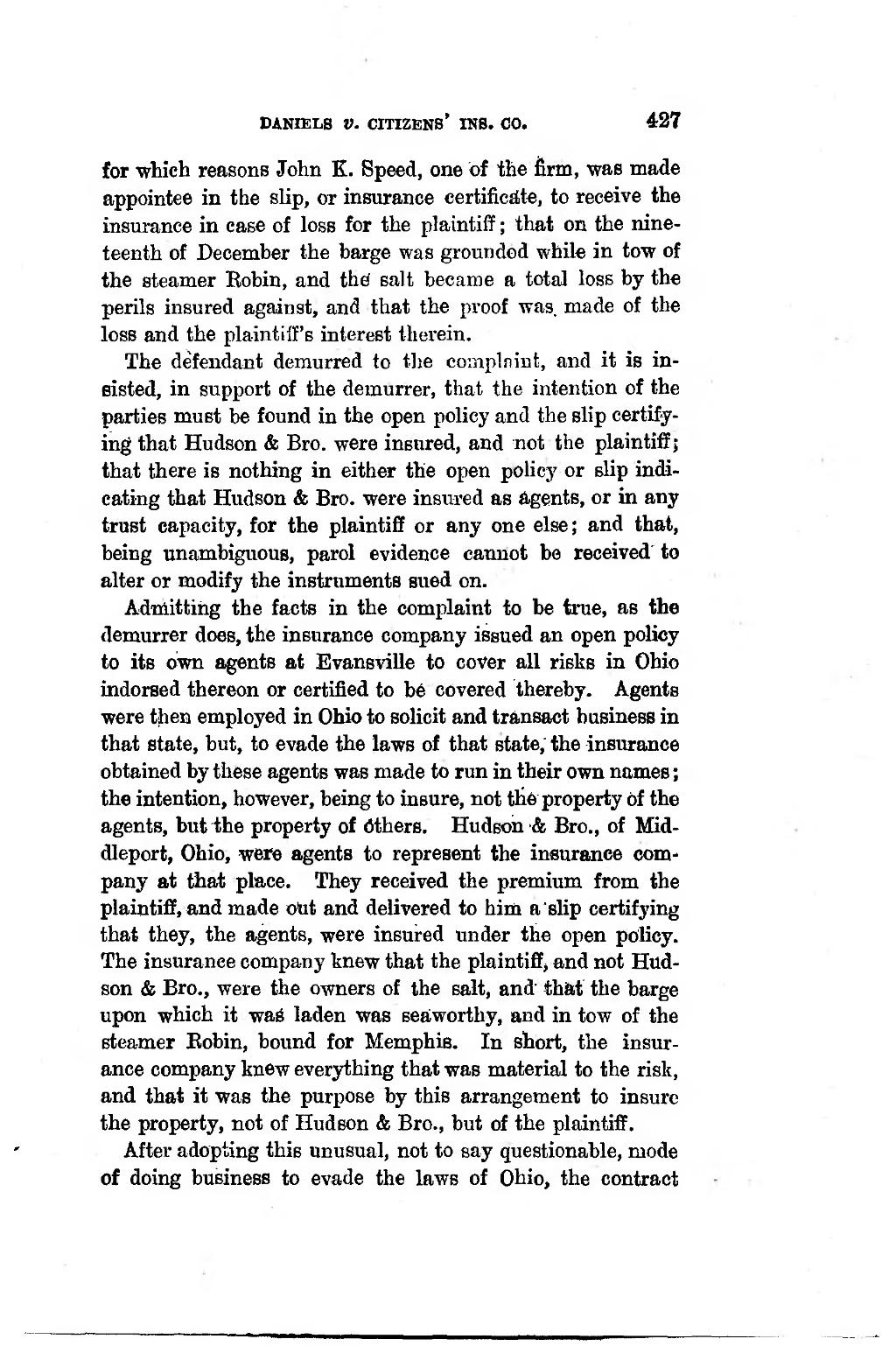DANIELS V. CITIZENS' INS. CO. 427 �for which reasons John K. Speed, one of the firm, was made appointee in the slip, or insurance certificsfcte, to receive the Insurance in case of loss for the plaintiff; that on the nine- teenth of December the barge was groundod while in tow of the steamer Eobin, and the' sait became a total loss by the perils insured against, and that the proof was, made of the loss and the plaintili's interest therein. �The defendant demurred to the complniiit, and it is in- BIsted, in support of the demurrer, that the intention of the parties must be found in the open policy and the slip certify- ing that Hudson & Bro. were insured, and not the plaintiff; that there is nothing in either the open policy or slip indi- cating that Hudson & Bro. were insured as agents, or in any trust capacity, for the plaintiff or any one else; and that, being unambiguous, paroi evidence cannot be received to alter or modify the instruments sued on. �Admitting the facts in the complaint to be true, as the demurrer does, the insurance company issued an open policy to its own agents at Evansville to cover ail risks in Ohio indorsed thereon or certified to be côvered thereby. Agents were then employed in Ohio to solicit and transact business in that state, but, to evade the laws of that state, the insurance obtained by these agents was made to run in their own names ; the intention, however, being to insure, not tte property ôf the agents, but the property of ôthers, Hudson & Bro., of Mid- dleport, Ohio, were agents to represent the insurance Com- pany at that place. They received the premium from the plaintiff, and made olit and delivered to him a slip certifying that they, the agents, were insured under the open policy. The insurance company knew that the plaintiff, and not Hud- son & Bro., were the owners of the sait, and that the barge upon which it wae laden was seaiworthy, and in tow of the steamer Eobin, bound for Memphis. In short, the insur- ance company knew everything that was material to the risk, and that it was the purpose by this arrangement to insure the property, not of Hudson & Bro., but of the plaintiff. �After adopting this unusual, not to say questionable, mode of doing business to evade the laws of Ohio, the contract ����
